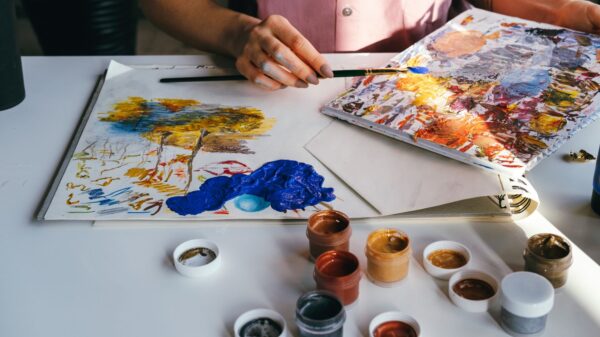
Treating Addiction: The Wonders of Art Therapy

It can’t be denied that art has a way of touching people in different ways. Whether it’s an appreciation of the talent that went into making it or the emotional response, art is an important part of people’s lives, whether they realize it or not. It also does wonders at helping people who are recovering from addiction or a traumatizing moment. Here’s what you should know about art therapy.
What Is Art Therapy?
Art therapy is an outlet for those who are trying to achieve sobriety from substance abuse. It is most times used as a complementary approach to other forms of counselling, improving the quality of medical detox benefits. The goal of art therapy isn’t to make a person an award-winning artist but to provide them with a creative outlet by allowing experimentation.
Art Therapy Allows For Self-Expression
A person going through medical detox and obtaining sobriety can go through a range of emotions, including guilt, shame, and grief. It can be difficult to put these emotions into words, and art allows in the individual to get the emotions out in a way that doesn’t use words. It doesn’t have to be great art; as long as the person is channelling what they feel through an outlet that helps them to deal with them.
Art Therapy Can Develop Into A New Hobby
When a person is addicted to a substance, it can take up a lot of their time to the point that they’re unable to do anything else. With art therapy, however, it can fill up those empty times a person discovers that they have now that they’re no longer taking the substance. Art therapy is a hobby that a person can take with them long after they’ve finished treating their addiction because it rechannels their brain into doing something productive and fun.
Art Therapy Helps With Self-Discovery
An addicted person is often in denial about their behaviour and how it’s hurting both their life and those around them. They can lose touch with the person that they used to be before they had the addiction. Creating art can be a reflective process of what the individual might be experiencing, as well as past experiences that suddenly come to mind.
Art Therapy Can Help Prevent A Relapse
The best way to prevent a relapse is to end their relationship with the substance they were abusing. Art therapy has a great way of doing that by dealing with any triggers that may cause anger and loneliness. Art can help a person overcome emotional roadblocks and express their thoughts and emotions to other people.
Art therapy can help you to become your best self, especially when you’re not feeling at your best. If you fear that you have a substance abuse disorder and want to seek help, speak to a medical health professional as soon as possible so that you can start your road to recovery. Art therapy could be exactly what you’re looking for to get over your bad relationship with drugs and/or alcohol.














































